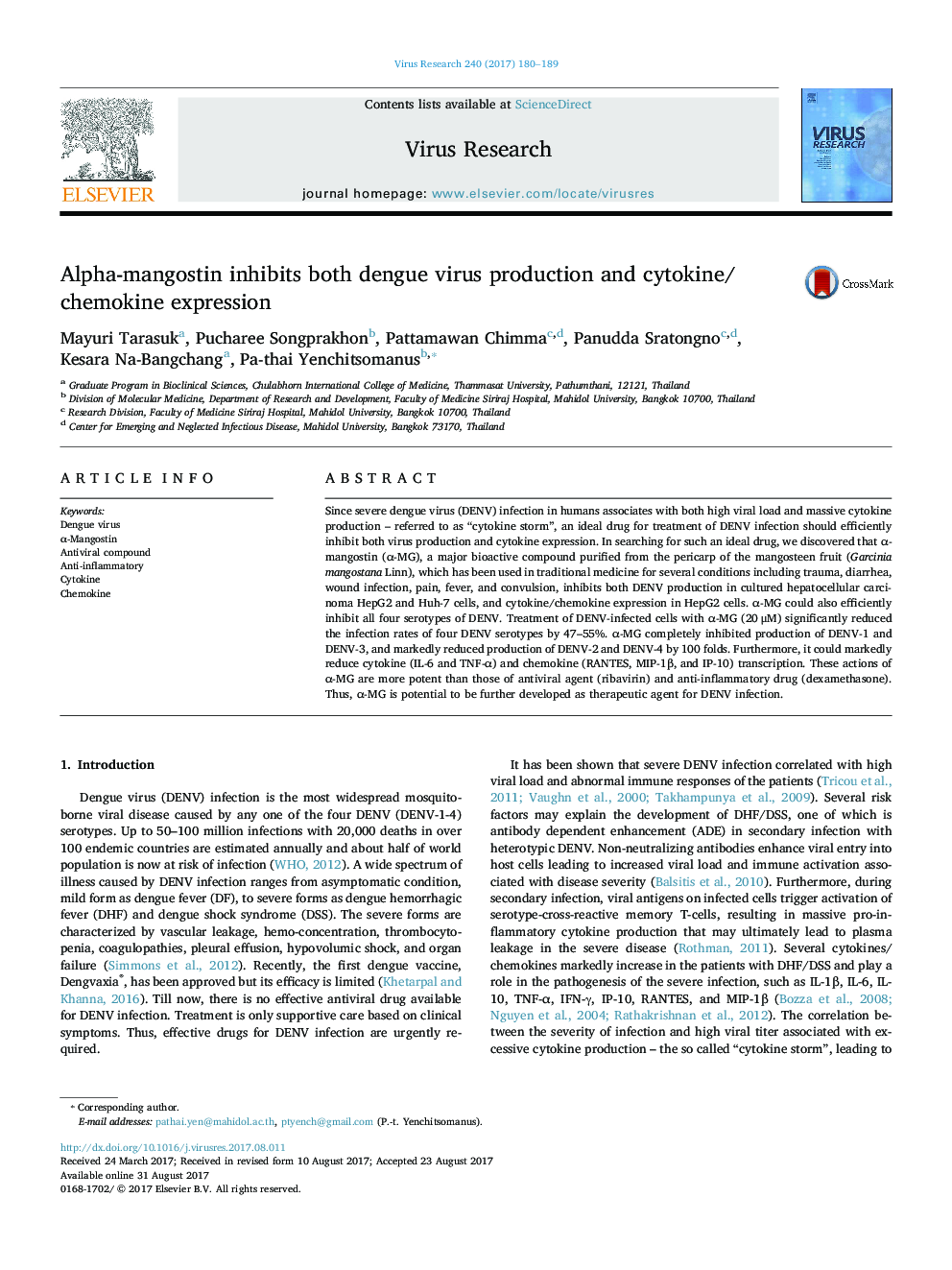| Article ID | Journal | Published Year | Pages | File Type |
|---|---|---|---|---|
| 5675307 | Virus Research | 2017 | 10 Pages |
â¢Severe dengue associates with high viral load and massive cytokine production.â¢Î±-Mangostin (α-MG) significantly reduced DENV infection and viral production.â¢Î±-MG significantly reduced IL-6, TNF-α, MIP-1β, RANTES, and IP-10 expression.â¢Î±-MG has potent antiviral and anti-inflammatory activities against all four DENVs.
Since severe dengue virus (DENV) infection in humans associates with both high viral load and massive cytokine production - referred to as “cytokine storm”, an ideal drug for treatment of DENV infection should efficiently inhibit both virus production and cytokine expression. In searching for such an ideal drug, we discovered that α-mangostin (α-MG), a major bioactive compound purified from the pericarp of the mangosteen fruit (Garcinia mangostana Linn), which has been used in traditional medicine for several conditions including trauma, diarrhea, wound infection, pain, fever, and convulsion, inhibits both DENV production in cultured hepatocellular carcinoma HepG2 and Huh-7 cells, and cytokine/chemokine expression in HepG2 cells. α-MG could also efficiently inhibit all four serotypes of DENV. Treatment of DENV-infected cells with α-MG (20 μM) significantly reduced the infection rates of four DENV serotypes by 47-55%. α-MG completely inhibited production of DENV-1 and DENV-3, and markedly reduced production of DENV-2 and DENV-4 by 100 folds. Furthermore, it could markedly reduce cytokine (IL-6 and TNF-α) and chemokine (RANTES, MIP-1β, and IP-10) transcription. These actions of α-MG are more potent than those of antiviral agent (ribavirin) and anti-inflammatory drug (dexamethasone). Thus, α-MG is potential to be further developed as therapeutic agent for DENV infection.
